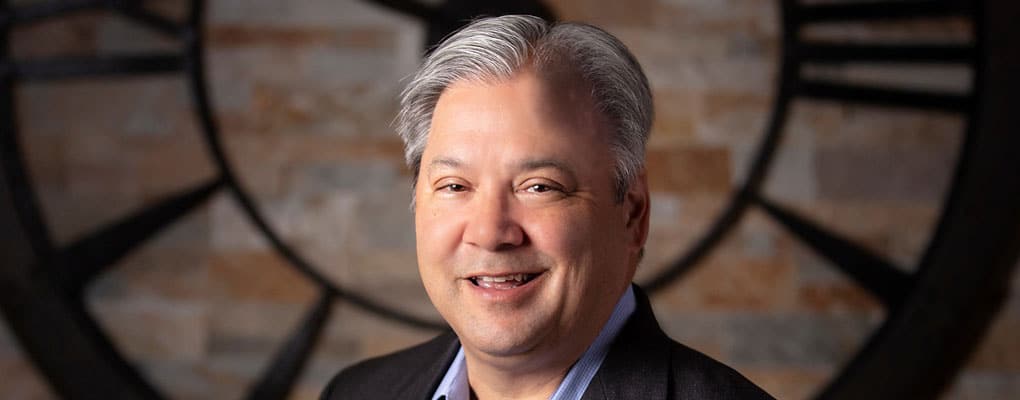
The University of Tennessee, Knoxville, is where Patrick Min (’83, ’84) found his path to success in life, despite hardships growing up. As a young man, UT is where he found a sense of family and guidance after losing his mother—his only guardian—at the age of 16.
Raised with two siblings in Rockwood, Tennessee, Min followed his older sister Nancy-Ann Min DeParle (’78) to UT in 1976. DeParle would later attend Oxford and Harvard Universities, eventually completing a Doctor of Jurisprudence degree and working in the White House at the highest levels of government. His older brother, Phillip, attended UT Chattanooga and ultimately completed master’s and doctorate degrees in music education at the University of Memphis.
Min, however, struggled initially due to the lack of parental accountability in his life. He dropped out and spent two years repossessing vehicles in rural East Tennessee, a line of work that gave him a newfound appreciation for higher education. He returned to UT in 1980, and on his second try found the path that would carry him to the life he sought.
“Before my mother passed away, she made clear it was very important to her that we all obtain our degrees,” Min said. “When I went back to UT, I ended up in a nonprofit accounting class with Mike Tiller and actually did really well. Accounting professors emeriti Dick Townsend, Jan Williams, Keith Stanga, Jack Kiger, and others really took an interest in me. It was like I became part of their family, and they provided me with guidance that I was sorely missing. They were all men of faith, so they set a great example for me in that area as well.”
Having matured and found a professional direction that suited him, Min entered UT’s Master of Accountancy program and excelled. During that time, David McClung, a Partner from Ernst & Young, now known as EY, in Atlanta recruited and hired Min.
“I got my second chance because I knew every one of the accounting faculty members, and they knew me. They mentored me in ways that were outside of the accounting field because they were just such good people.” – Patrick Min
For Min, the story of his start into his professional career is one of second chances.
“When you look at who joins these big accounting firms, I’d be surprised if you’d find that 1 percent of the recruits are people who struggled academically and dropped out of college, ever,” Min said. “I got my second chance because I knew every one of the accounting faculty members, and they knew me. They mentored me in ways that were outside of the accounting field because they were just such good people.”
Over the years, Min returned to UT as a recruiter for EY and was also a member of the Accounting Advisory Roundtable. He and Joe Carcello, emeritus professor of accounting, started their careers at EY together.
“Joe has been a great friend and sounding board for me over the years,” Min said. “I think Joe is one of the smartest people I’ve ever met, and he is such a good person. That’s one of the reasons he fit in so well on the faculty at UT.”
Eventually, Min left EY and struck out on his own. He specialized in working with distressed companies in the role of chief financial officer and currently operates Beacon Accounting & Tax LLC in Franklin, Tennessee.
“I spent the majority of my professional career working with struggling companies, trying to turn them around or developing an exit strategy for them,” Min said. “I learned a few key things at UT that helped me in these circumstances. One was problem solving. I could look at a set of financials to find things that other people might not, such as evaluating costs that might be unnecessary or renegotiated, and where other improvements could be made.
“Another was how to work through problems with others, like entrepreneurs, who sometimes need to make decisions that are difficult because they run counter to the objective facts. And probably the most important thing was placing a high value on people and relationships,” Min said. “People are the biggest asset in any organization, and I learned this from the UT faculty, not from books. The accounting department I knew over a 20-year period was always intact. The faculty all had their strengths and weaknesses, but I saw how they worked together to make something special, and I never forgot that. So instead of starting cost cuts with employees, I recognized how important they are and that helped me in turnaround situations to make good decisions regarding people.”